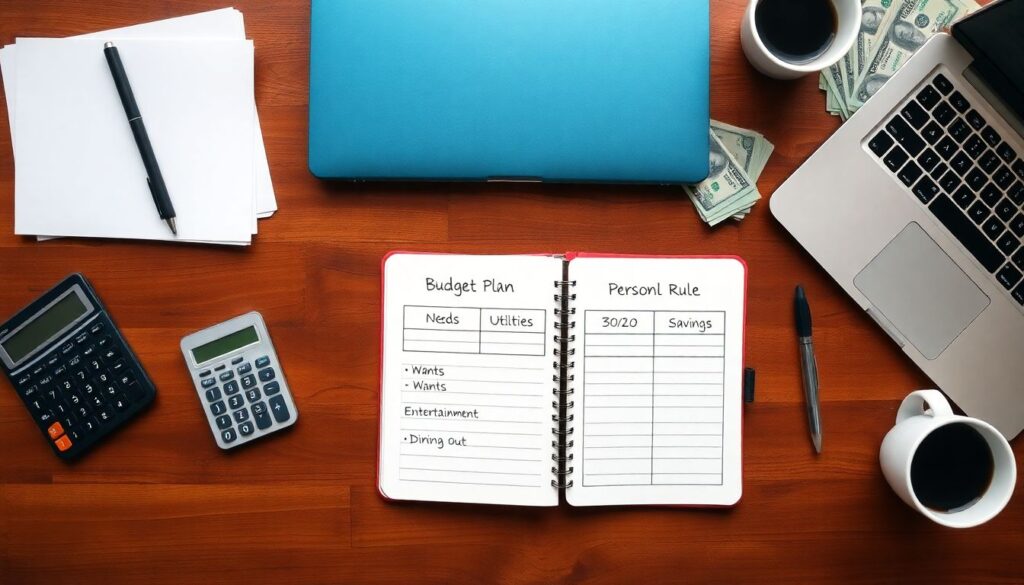No-Excuses Budgeting for Beginners: How to Take Control of Your Finances Today
Why Budgeting is No Longer Optional
In the age of instant gratification and digital spending, financial discipline has become more critical than ever. Yet many people still delay creating a budget, convinced it’s too complex or time-consuming. The truth? Anyone can learn how to start budgeting with the right mindset and tools. The “no-excuses budgeting guide” is not about perfection—it’s about progress. It’s about eliminating the mental blocks that keep you from taking control of your money. Whether you’re living paycheck to paycheck or just want to save more purposefully, there are simple budgeting strategies that can transform your financial life.
Inspiring Real-Life Example: From Debt to Financial Freedom
Consider the story of Rachel, a 29-year-old graphic designer from Seattle. Just three years ago, she was $18,000 in credit card debt, living in overdraft, and ignoring her statements. After discovering beginner budgeting tools like Mint and YNAB (You Need A Budget), she committed to a no-excuses approach. Her strategy was simple: track every expense, prioritize debt repayment, and cut unnecessary spending. Within 18 months, she was debt-free. Today, she has a six-month emergency fund and contributes regularly to retirement savings. Rachel’s success wasn’t about income—it was about intention.
Simple Budgeting Strategies That Actually Work

You don’t need a finance degree to manage your money. The key is consistency. Start by identifying your monthly income and fixed expenses. Then allocate funds to flexible categories like groceries and entertainment. Use the 50/30/20 rule as a starting point:
– 50% for needs (rent, utilities, food)
– 30% for wants (subscriptions, dining out)
– 20% for savings and debt repayment
Digital tools such as EveryDollar and Goodbudget make it easier than ever to stay on track. These beginner budgeting tools offer visual dashboards, goal tracking, and automated reminders to help you stay accountable.
Development Tips: Building a Budgeting Habit
Budgeting is not a one-time task—it’s a habit. Start small. Set a weekly 15-minute money check-in. Review your spending, adjust your categories, and celebrate small wins. Over time, this habit becomes second nature. For those just starting, here are a few budgeting tips for beginners:
– Automate your savings to “pay yourself first”
– Use cash envelopes for discretionary spending
– Set short-term goals like saving $500 in 3 months
These steps may seem minor, but they build the foundation of long-term financial stability. The no-excuses budgeting guide emphasizes action over perfection. Even imperfect budgets teach you more than avoiding the process altogether.
Case Study: Budgeting as a Family Project
Another powerful example comes from the Nguyen family in Austin, Texas. With two kids and a single income, they struggled to stay afloat. After attending a local financial literacy workshop, they decided to treat budgeting as a family project. They involved their children in meal planning to reduce food waste and used a shared Google Sheet to track household expenses. Within a year, they reduced their grocery bill by 25%, paid off their car loan, and started saving for a home. Their success illustrates how simple budgeting strategies, when applied consistently, can create powerful results—even on a tight budget.
Resources to Accelerate Your Budgeting Journey

To reinforce your budgeting habit, leverage educational resources designed for beginners. Podcasts like “The Budget Mom” and “ChooseFI” break down complex topics into digestible tips. Free online courses from platforms like Coursera and Khan Academy offer structured lessons on personal finance. For a hands-on approach, try budgeting apps that automatically categorize your spending and provide real-time feedback. These tools are not just conveniences—they’re accelerators for your progress.
Recommended tools and platforms:
– Mint – best for automated tracking and goal setting
– YNAB – ideal for zero-based budgeting
– PocketGuard – helps identify spending leaks quickly
With these resources, even those with no financial background can learn how to start budgeting in a practical, stress-free way.
Final Thoughts: Your Financial Future Starts Now
Budgeting is not about restriction—it’s about freedom. The no-excuses budgeting guide empowers you to make conscious choices with your money, regardless of your starting point. Whether you’re inspired by Rachel’s debt-free journey or the Nguyen family’s teamwork, one truth stands out: financial transformation begins with a single decision to act. With the right beginner budgeting tools and a commitment to growth, anyone can build a life of financial confidence.
The best time to start was yesterday. The second-best time is now.
